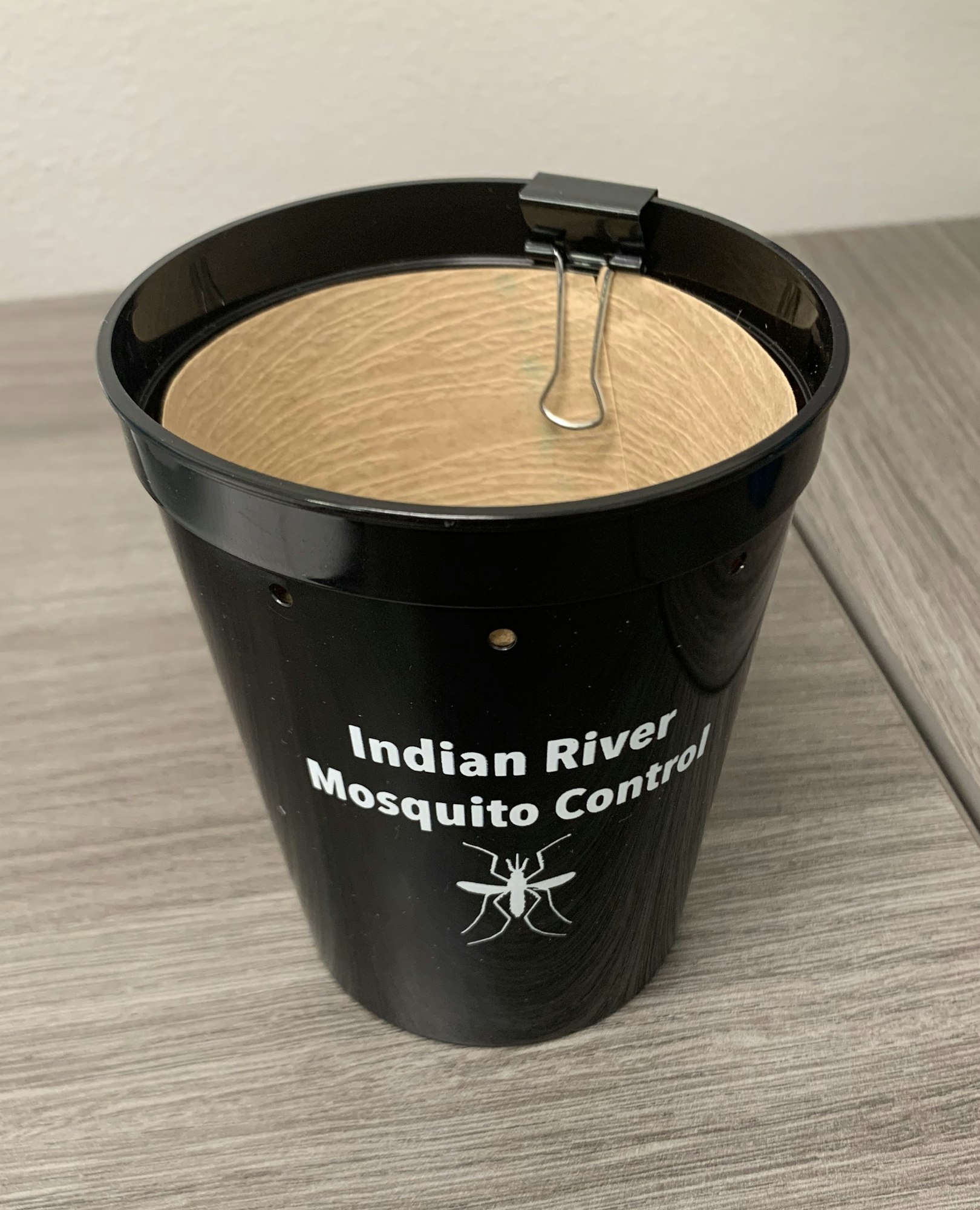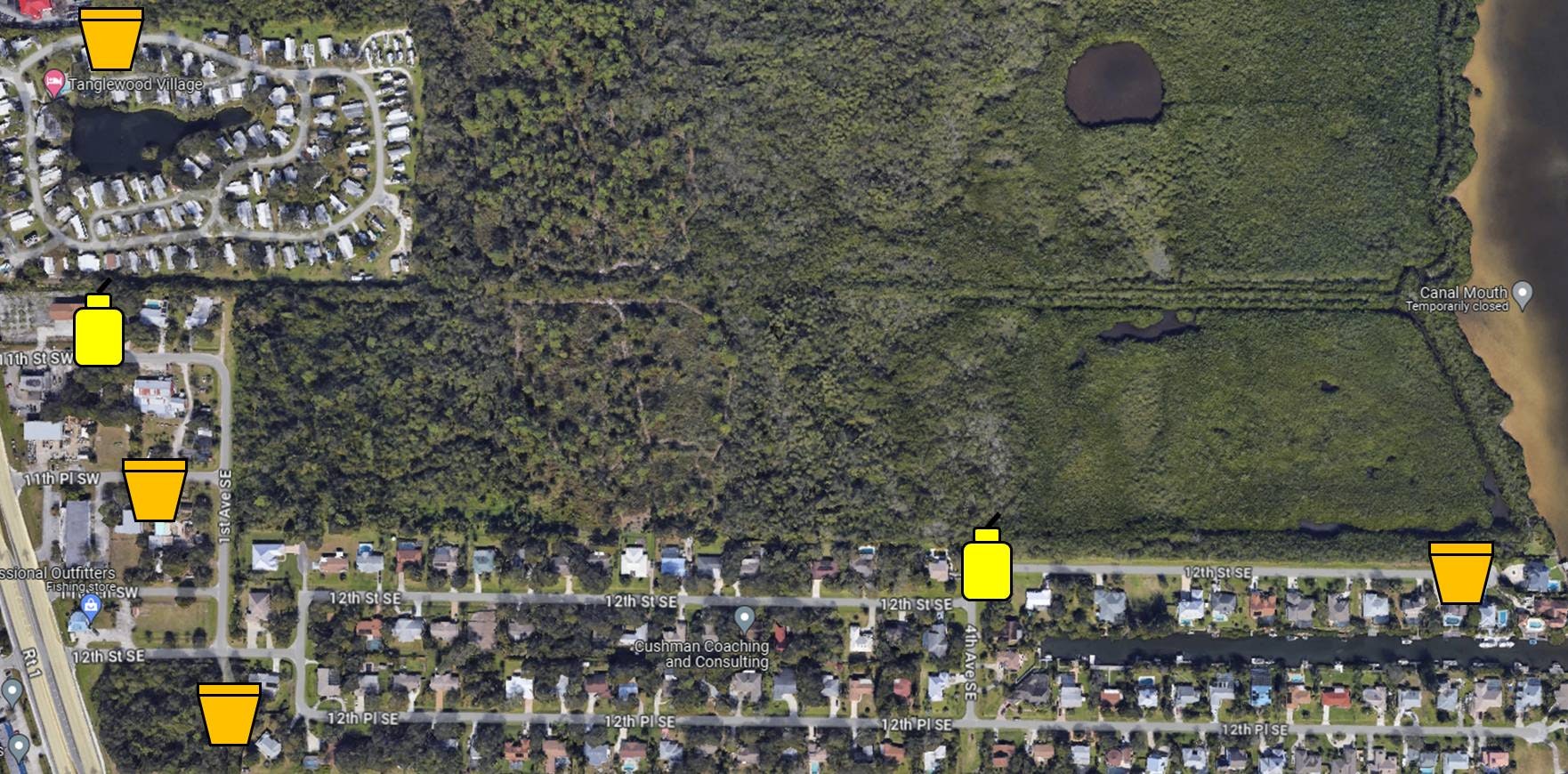Update on New Field Research
*Update* New Field Testing
Starting this year the Science department is launching a brand-new project focused on understanding the distribution of two medically important vector species, Aedes aegypti and Aedes albopictus. These two species are known vectors of Dengue, Zika, and Chikungunya arboviruses. The knowledge gained from this project will be used to construct disease transmission risk maps that we can use to better protect the public from a disease outbreak. The project involves placing two collection traps, ovicups and BG traps (pictured below), around residences and businesses to obtain Aedes aegypti and albopictus eggs and adults. These traps are completely safe and harmless, so if you see them in your area, please do not disturb them.


Updated locations shown below are actively being sampled. On the maps, the orange “cup” icon indicates an ovicup site and the yellow “BG trap” icon represents the BG trap site. The areas on the maps will be sampled. As collection locations change, new maps will be provided to keep the public up to date. So, check back regularly to see where the project moves next.
.jpg?ixlib=rb-1.1.0&w=2000&h=2000&fit=max&or=0&s=0216709335bf76469741747c2a7ede9e)

If you have any questions about the project or would like to volunteer your residence as a collection site, please contact Kyle Kosinski at the Indian River Mosquito Control District at (772) 562-2393 or k.kosinski@irmcd.org
